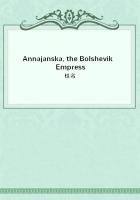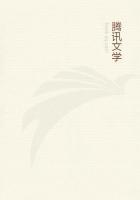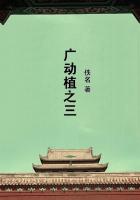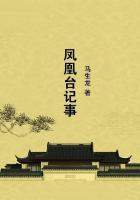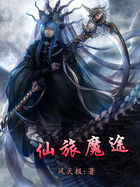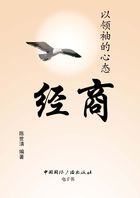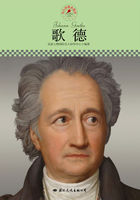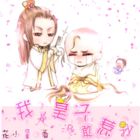Dead Souls, first published in 1842, is the great prose classic of Russia. That amazing institution, "the Russian novel," not only began its career with this unfinished masterpiece by Nikolai Vasil'evich Gogol, but practically all the Russian masterpieces that have come since have grown out of it, like the limbs of a single tree.
Dostoieffsky goes so far as to bestow this tribute upon an earlier work by the same author, a short story entitled The Cloak; this idea has been wittily expressed by another compatriot, who says: "We have all issued out of Gogol's Cloak."Dead Souls, which bears the word "Poem" upon the title page of the original, has been generally compared to Don Quixote and to the Pickwick Papers, while E. M. Vogue places its author somewhere between Cervantes and Le Sage. However considerable the influences of Cervantes and Dickens may have been--the first in the matter of structure, the other in background, humour, and detail of characterisation--the predominating and distinguishing quality of the work is undeniably something foreign to both and quite peculiar to itself; something which, for want of a better term, might be called the quality of the Russian soul. The English reader familiar with the works of Dostoieffsky, Turgenev, and Tolstoi, need hardly be told what this implies; it might be defined in the words of the French critic just named as "a tendency to pity." One might indeed go further and say that it implies a certain tolerance of one's characters even though they be, in the conventional sense, knaves, products, as the case might be, of conditions or circumstance, which after all is the thing to be criticised and not the man. But pity and tolerance are rare in satire, even in clash with it, producing in the result a deep sense of tragic humour. It is this that makes of Dead Souls a unique work, peculiarly Gogolian, peculiarly Russian, and distinct from its author's Spanish and English masters.
Still more profound are the contradictions to be seen in the author's personal character; and unfortunately they prevented him from completing his work. The trouble is that he made his art out of life, and when in his final years he carried his struggle, as Tolstoi did later, back into life, he repented of all he had written, and in the frenzy of a wakeful night burned all his manuscripts, including the second part of Dead Souls, only fragments of which were saved. There was yet a third part to be written. Indeed, the second part had been written and burned twice. Accounts differ as to why he had burned it finally. Religious remorse, fury at adverse criticism, and despair at not reaching ideal perfection are among the reasons given. Again it is said that he had destroyed the manuscript with the others inadvertently.
The poet Pushkin, who said of Gogol that "behind his laughter you feel the unseen tears," was his chief friend and inspirer. It was he who suggested the plot of Dead Souls as well as the plot of the earlier work The Revisor, which is almost the only comedy in Russian. The importance of both is their introduction of the social element in Russian literature, as Prince Kropotkin points out. Both hold up the mirror to Russian officialdom and the effects it has produced on the national character. The plot of Dead Souls is simple enough, and is said to have been suggested by an actual episode.
It was the day of serfdom in Russia, and a man's standing was often judged by the numbers of "souls" he possessed. There was a periodical census of serfs, say once every ten or twenty years. This being the case, an owner had to pay a tax on every "soul" registered at the last census, though some of the serfs might have died in the meantime.
Nevertheless, the system had its material advantages, inasmuch as an owner might borrow money from a bank on the "dead souls" no less than on the living ones. The plan of Chichikov, Gogol's hero-villain, was therefore to make a journey through Russia and buy up the "dead souls," at reduced rates of course, saving their owners the government tax, and acquiring for himself a list of fictitious serfs, which he meant to mortgage to a bank for a considerable sum. With this money he would buy an estate and some real life serfs, and make the beginning of a fortune.
Obviously, this plot, which is really no plot at all but merely a ruse to enable Chichikov to go across Russia in a troika, with Selifan the coachman as a sort of Russian Sancho Panza, gives Gogol a magnificent opportunity to reveal his genius as a painter of Russian panorama, peopled with characteristic native types commonplace enough but drawn in comic relief. "The comic," explained the author yet at the beginning of his career, "is hidden everywhere, only living in the midst of it we are not conscious of it; but if the artist brings it into his art, on the stage say, we shall roll about with laughter and only wonder we did not notice it before." But the comic in Dead Souls is merely external. Let us see how Pushkin, who loved to laugh, regarded the work. As Gogol read it aloud to him from the manuscript the poet grew more and more gloomy and at last cried out: "God! What a sad country Russia is!" And later he said of it: "Gogol invents nothing; it is the simple truth, the terrible truth."The work on one hand was received as nothing less than an exposure of all Russia--what would foreigners think of it? The liberal elements, however, the critical Belinsky among them, welcomed it as a revelation, as an omen of a freer future. Gogol, who had meant to do a service to Russia and not to heap ridicule upon her, took the criticisms of the Slavophiles to heart; and he palliated his critics by promising to bring about in the succeeding parts of his novel the redemption of Chichikov and the other "knaves and blockheads." But the "Westerner" Belinsky and others of the liberal camp were mistrustful.


